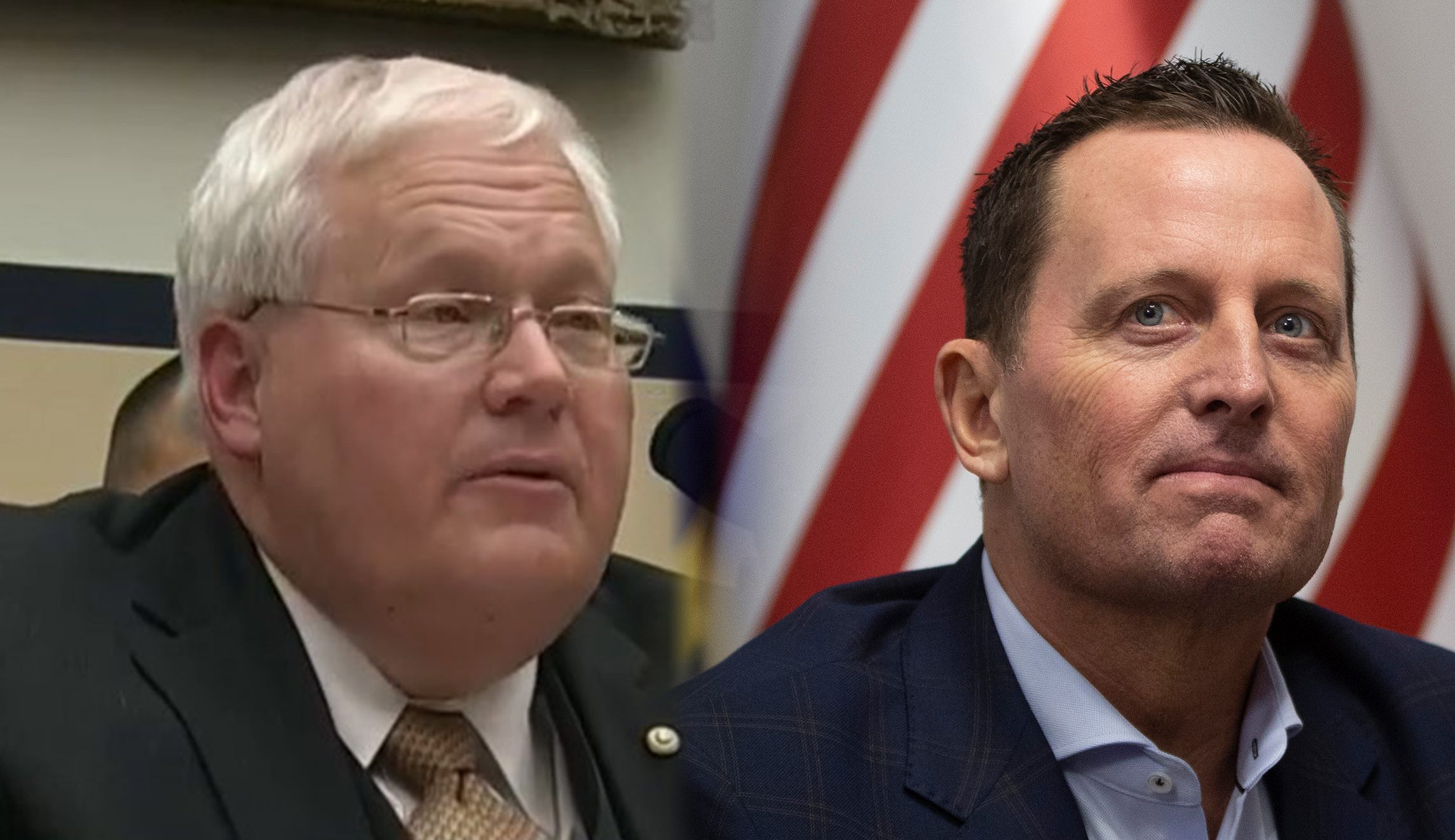President Trump’s spy chief, Richard Grenell, has selected career intelligence professional and longtime naval intelligence officer Neil Wiley to serve as his top deputy, an intelligence community source told the Washington Examiner.
Grenell, the U.S. ambassador to Germany who was selected earlier this year to serve as acting director of national intelligence, overseeing the nation’s 17 spy agencies, plans to make the announcement about his new deputy as early as Wednesday.
Some critics have accused Grenell of stacking high-ranking posts at the Office of the Director of National Intelligence with Trump loyalists, but his selection of a respected career intelligence official who has served for decades in both Democratic and Republican administrations may help to assuage those concerns.
Wiley, who has spent more than 30 years in the national security arena, is the chairman of the National Intelligence Council, the intelligence community’s center for long-term strategic thinking — notable for its quadrennial “Global Trends” reports on long-term threats and challenges faced by the United States. Wiley testified before Congress during the Trump administration on topics related to intelligence tradecraft and its role in assisting warfighting, including in the battle against the Islamic State.
Wiley previously served as the director for analysis for the Defense Intelligence Agency after his appointment during the Obama administration in 2015. He also worked as a deputy director for analysis at the DIA and served at the U.S. European Command’s Joint Analysis Center from 2003 through 2012 in a variety of top intelligence roles. Prior to that, Wiley served in the U.S. Navy for three decades, from 1983 until 2003: first as a surface line officer and then an intelligence officer.
Wiley will be taking over the role that was left vacant by Andrew Hallman, a longtime CIA officer who held the principal deputy director role at DNI under former acting Director of National Intelligence Joseph Maguire until stepping down when Grenell temporarily took over the top spot earlier this year.
If Texas Rep. John Ratcliffe, Trump’s nominee to be his permanent director of national intelligence, is confirmed by the Senate, Wiley will likely stay in the No. 2 role.

Grenell has faced opposition from Democrats who claim he was picked for his loyalty to Trump. His defenders say he has been a forceful advocate for U.S. interests in strengthening NATO and countering Russia as ambassador, and since taking on the new role Feb. 20, he has embarked on a lengthy effort to end what are viewed as redundant efforts carried out by the ODNI, citing years of ODNI reviews and recommendations as he moves to shift some power back to the other spy agencies and to refocus and streamline the ODNI. He has done so as he brings in some new leadership while also keeping on some key officials.
A two-year standoff over a top counterintelligence nomination ended earlier this month after Republican Sen. Chuck Grassley said Grenell and Attorney General William Barr had provided long-sought transparency for the Trump-Russia congressional investigations.
William Evanina, a former FBI special agent, has led the National Counterintelligence and Security Center since 2014 and in February 2018 was nominated by Trump to be the first Senate-confirmed director of the center. He was confirmed by the Senate last week.
Among Grenell’s first moves upon becoming acting spy chief was to ask Shelby Pierson, the intelligence community’s election threats executive, to stay on in her role.
In March, Grenell also picked Lora Shiao, a longtime counterterrorism intelligence veteran, to be the National Counterterrorism Center’s next deputy director, noting that she will serve as the center’s first female director until the confirmation of a permanent one. Clare Linkins, who has spent years in the counterterrorism arena, was picked as the NCTC’s next executive director at the same time.
The selection of Shiao and Linkins came a few weeks after National Security Council aide Kash Patel, who previously served as an aide to the House Intelligence Committee’s Devin Nunes, was appointed to be a senior adviser for Grenell.
Grenell clashed with Democratic House Intelligence Committee Chairman Adam Schiff, who has repeatedly accused Grenell of politicizing his role. Under pressure by Grenell, Schiff released, after many months of delay, dozens of witness transcripts from the House’s Russian interference investigation, which showed that top Obama national security officials did not have evidence of any Trump-Russia collusion.
In recent weeks, the acting spy chief has played a key role in declassifying information related to Department of Justice Inspector General Michael Horowitz’s report on alleged Foreign Intelligence Surveillance Act abuses and regarding the unmasking efforts by Obama administration officials against retired Lt. Gen. Michael Flynn and others.
And last week, the ODNI announced significant organizational changes at the spy office with the intent to “strengthen the intelligence community’s cyber posture,” in part by combining four previously separate ODNI cyberorganizations into one focused operation, dubbed “the IC Cyber Executive.”

